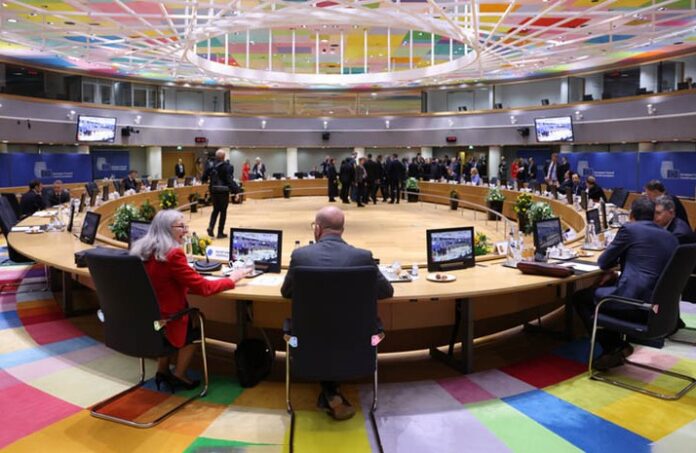The European Union has agreed to launch membership negotiations later this month with Ukraine and Moldova. The long awaited move brings the two countries a step closer to the West while distancing them further from Russia’s influence.
Belgium, the current holders of the EU presidency, announced on Friday that member states had agreed talks would start in Luxembourg on 25 June.
Ukraine’s President Volodymyr Zelenskyy described the decision on X as “an historic step”, saying it was the fulfillment of the “European dream… [for] generations of our people” and for millions of Ukrainians. “Ukraine is returning to Europe, where it has belonged for centuries, as a full-fledged member of the European community,” he declared.
Friday’s decision is a resounding show of the EU’s commitment to Ukraine over and above the huge financial support the 27-member bloc has already provided the beleaguered country. Kyiv’s bid for EU membership, which came less than a week after Russia’s invasion of Ukraine in February 2022, was met with a positive response from the EU at the time but then got bogged down in the complex, often cumbersome membership process that can take years to complete.
While EU leaders gave the green light that accession negotiations could start with both Ukraine and Moldova, yesterday’s move lays the legal basis for the talks to proceed.
Candidate countries are required to align their legal systems with those of the EU and to comply with a range of economic and political conditions that include adherence to the rule of law and general democratic principles. In the case of Ukraine, this will require an undertaking to deal with issues of entrenched government corruption and to adopt additional reforms.
Meanwhile, Moldova, all too aware of what has transpired in Ukraine, continues to accuse Russia of making it the target of a “hybrid war”. Moldavian authorities claim Moscow has interfered in the country’s local elections and that it is behind widespread disinformation campaigns intended to unseat the government and derail its efforts to join the EU. Moscow denies the allegations.

